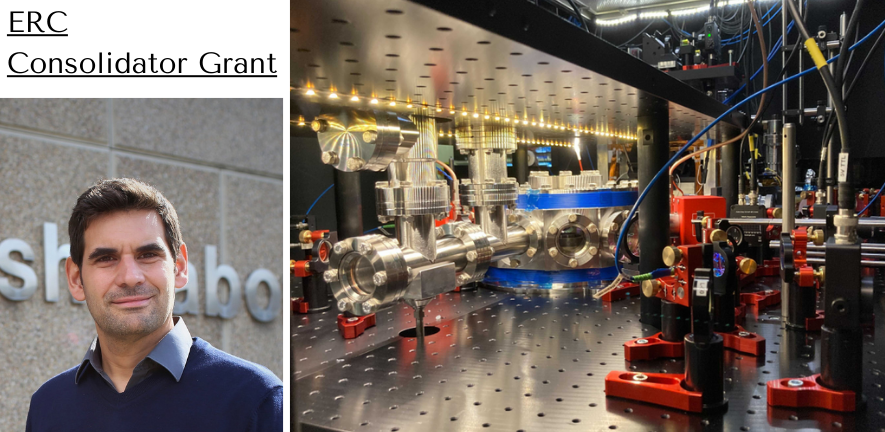
Submitted by Vanessa Bismuth on Thu, 17/03/2022 - 11:59
Cavendish Laboratory researcher, Professor Ulrich Schneider, is one of the winners of the European Research Council’s (ERC) latest round of Consolidator Grants, backed with some €632 million to tackle big scientific questions of our time.
Professor Schneider, who leads the Many-Body Quantum Dynamics group at the Cavendish Laboratory, secured a grant of €2 million (£1.6 million) to build the first Quantum Gas Microscope for the Kagome lattice in order to study the rich physics of frustration, flat bands, and novel strongly-correlated states.
During the last twenty years, ultracold atoms in optical lattices have emerged as clean and versatile model systems to study the many-body physics of interacting particles in periodic potentials. In particular, Quantum Gas Microscopes enable the observation and manipulation of lattice gases with single-site resolution.
“We study many-body phenomena using ultracold atoms, which we load into optical lattices. These periodic optical potentials are similar to the electrostatic potential felt by electrons in a conventional solid,” said Schneider. “Effectively, we are building a quantum simulator for condensed matter physics, where we can study many-body physics in a very clean and precisely controlled system and have all the tools from quantum optics at our disposal.
“Our ambition with this ERC funding is to develop a new microscopy technique that gets around the typical resolution limits. This technique will be rather general and can be directly adapted to many other bichromatic superlattices, providing access to crucial local quantities with single-site resolution, thereby significantly increasing the realm of models accessible to Quantum Simulators.”
The European funding supports mid-career researchers and help them consolidate their teams and conduct pioneering research on topics and with methods of their choosing. Part of the EU’s Horizon Europe programme, this new round of grants will create an estimated 1,900 jobs for postdoctoral fellows, PhD students and other staff at 189 host institutions.
In this call, 1,108 applicants submitted their proposals in the Physical Sciences and Engineering domain, and 12% of them will receive the funding.
Adapted from a European Research Council press release.
